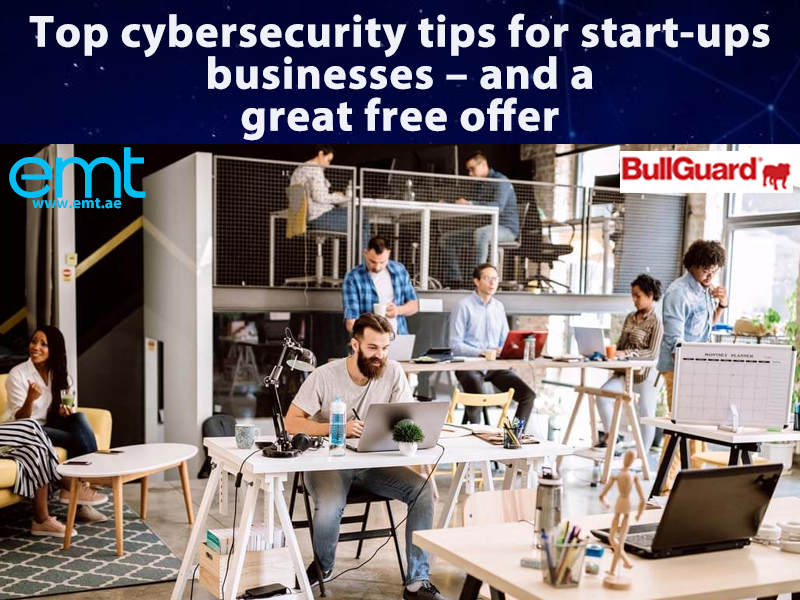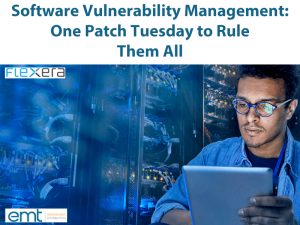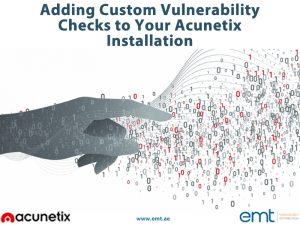Cybersecurity at start-up businesses is one of those things that can be on the periphery. For sure, it’s important and it’s needed but for many business owners the main priority is to get the business up and running and then add in some basic security measures before the wheels start moving.
But well-thought-out cybersecurity is just as important for your business as is hiring the right people and here’s why:
- Keeps your business running – As a start-up, your number one goal is to be profitable, the ability to convert leads and make sales is essential. A cyber incident is costly and not something you want to deal with as a start-up when you are simply looking to keep your business running.
- Secures client data – At some point you will be likely working with or storing other people’s data. This could be banking information or contact information, but the data you use is private, and your company is entrusted to keep it that way. This is why cybersecurity is so important.
- Sets you up for success – The cyber landscape is often changing and cybercriminals are often on the cutting edge of finding and exploiting vulnerabilities. Cyber-attacks are a real threat. If you acknowledge this and prepare for the worst, you’re also setting yourself up for future success.
Think about life without cybersecurity. Unlike larger organisations, small businesses are often poorly equipped to recover after a cyber-attack. Ransomware could cripple your business and force a huge pay-out. You may also be required to spend a small fortune on cybersecurity contractors but even these experts can’t guarantee you’ll recover any critical data.
Doing it in the cloud
Start-ups today are in a good position when it comes to technology. They don’t need to have tech in-house and they can use services that are cloud-based. This can be important apps that are provided ‘as-a-service’ such as an accountancy or CRM app and it most certainly includes everyday apps like Office 365.
Cloud storage is also another boon. Files can be accessed from any location, you don’t run the risk of disk failures or have to concern yourself with physical protection. Cloud-based apps and files are also ideal for remote working because they can be accessed from any device, at any location, and at any time.
- However, be discriminating about the online services, plug-ins, and tools you subscribe to. Many of these services share data through integration. If tasks can be carried out via a software suite rather than numerous different tools, it’s better for security. If only one tool is exploited by hackers it could lead to the others being affected too.
Cloud security
One cloud application that shouldn’t be overlooked is BullGuard Small Office Security. Specifically designed for start-ups and small businesses it protects all computing devices, whether in the office, home working, or out in the field, with award-winning protection.
- All devices are protected via a cloud-based centralised dashboard. This means you don’t need to manage each device individually. It includes a multi-layered behavioral engine that keeps businesses safe from all types of malware, machine learning for advanced zero-day threat detection, real-time scanning, and on-demand scanning, so companies always have the most up-to-date virus signatures.
- Safe browsing monitors online activity and prevents users from entering websites with malicious code. It also protects against malicious plug-ins, browser extensions, and browser attacks. Anti-theft components allow the administrator to remote locate, lock, and send wipe commands if a mobile device is lost or stolen. Small Office Security also provides complete reports on device status, threats, and tasks, so nothing is overlooked.
Today BullGuard is offering free 3-month cybersecurity for start-ups and small businesses. Since the onset of the Covid-19 pandemic there has been a huge surge in cyber-attacks on home workers and small businesses. This free licence enables businesses to protect themselves at no cost and with no strings attached. You certainly don’t need to provide payment card details.
Insider threats
Any employee can cause a data breach or leak by mistake and you can’t watch everyone, but you should pay specific attention to privileged users, third parties, and terminated employees. This may seem a bit unnecessary but it’s not unknown for someone to leave a small company and take a copy of the sales contact database with them.
- To defend against insider threat, it’s key to restrict the number of employees with privileged access to your critical systems and software. Plus, when employees leave, be sure to deactivate their accounts.
- Privileged users are usually the most trusted employees and will have access to your data. You must keep track of the number of privileged users in your organisation and terminate their access when they leave, even if you’re on good terms.
- Subcontractors and third-party vendors should also be treated as a potential security risk. If a third party has admin privileges to your critical data and systems, reset your passwords once they’ve finished.
Education, education, and education
A well-targeted phishing email could convince an unaware employee to give up their password, bypassing any defences you’ve worked hard to establish. That’s why education and training are essential. Some employees may not know to protect themselves online which will put your business directly at risk.
- Hold training sessions to teach your employees cyber crime basics, including how to properly manage passwords and identify potential phishing attempts. Even a basic level of cybersecurity knowledge can mean the difference between being hacked or avoiding the risk.
- Every employee must understand the basics of cybersecurity, but it shouldn’t end there – responsibility for cybersecurity should be given to your employees. Even in start-ups and small businesses, someone must be responsible for cybersecurity.
For instance, BullGuard Small Office Security doesn’t require technical expertise to manage. All actions are simply carried out from the cloud dashboard. Nominating a single person to manage devices will help cement the importance of cybersecurity.
It will also reveal how easy and effortless it is, with the right technology, to defend against malware including deadly ransomware and phishing emails that hide malicious code.
Passwords
Factory-set passwords left unchanged are one of the most common security mistakes to make. All passwords that come with any system or software must be changed before they’re deployed.
- Pay particular attention to devices such as routers. Even your office printer can represent an easy target for criminals to gain access to your network.
- You’ll likely be using many tools and services, each ideally requiring a unique strong password. As such it can be near impossible to remember them all. Take advantage of password management software (some of which is free) which will generate and store complex passwords in an encrypted form
Virtual private network
A VPN (virtual private network) is as fundamental to start-up/small business security as is securing all end devices. It creates a private tunnel between a device and the services it is connecting to protecting all your communications against hackers and snoopers.
BullGuard VPN also provides military-grade encryption for your data making it impossible to crack. It also hides your IP address so you are invisible on the internet. It’s also an absolute must for remote and home workers and especially so when using unsecured public Wi-Fi networks given that it hides and protects all your communications.






